First published as hardback and eBook in the United Kingdom in 2013 by
PAVILION BOOKS
10 Southcombe Street
London
W14 0RA
An imprint of Anova Books Company Ltd
Text Stacie Stewart 2013
Design and layout Anova Books 2013
Photography Dan Jones 2013 (excluding pages 7, 23, 30, 118, 205)
Photography Helen Russell 2013 pages 7, 23, 30, 118, 205
The moral right of the author has been asserted.
All rights reserved. No part of this publication may be reproduced, stored in a retrieval system, or transmitted in any form or by any means electronic, mechanical, photocopying, recording or otherwise, without the prior written permission of the copyright owner.
Senior commissioning editor: Becca Spry
Cover design & art direction: Georgina Hewitt
Photographer: Dan Jones
Design: Karin Fremer
Copy editor: Maggie Ramsay
Stylist: Lucy Harvey
Food stylist: Emma Marsden
Production: Laura Brodie
First eBook publication 2013
eBook ISBN: 978-1-909108-56-1
Also available in hardback
Hardback ISBN: 978-1-909108-06-6
Cooks note: both metric and imperial measures are given for the recipes. Follow either set of measures, not a mixture of both, as they are not interchangeable. Medium eggs should be used except where otherwise specified. Free-range eggs are recommended. Note that some recipes contain raw or lightly cooked eggs. The young, elderly, pregnant women and anyone with an immune-deficiency disease should avoid these, because of the slight risk of salmonella.

For my granda Ernie
28 July 1930 9 October 2012
You made the worst fried
breakfast in Sunderland but you
could make a skateboard out of a
hoover nobodys perfect! xx
Hello & welcome!
Ive always known I would end up as a baker. Almost as soon as my nine cousins and I could walk, my Nana Jean taught us the basics of baking. I would stand on a stool at her kitchen table in her house in Carley Road, Sunderland. It didnt feel like a lesson; it was like playing a game, and with a few dozen mouths to feed around the family table, we provided extra pairs of hands willing to knead, roll and shape. This is where my love for proper, old-fashioned British baking began.
Classic baking, to me, means not only looking back to our baking heritage and continuing to bake and share those recipes, but also putting a modern spin on old classics. The Chocasheek (page 144), for example, is based on a cornflake cake that my Nana Jean has been making since before I was born; my mam remembers being given this cake on a Saturday afternoon, smothered in jam; I make it as a dessert, with a chocolate topping. In the past there was a sweet treat for every occasion and to suit every budget. Whatever the celebration Valentines, Easter, Mothers Day, school ftes or Christmas a cake seemed to be at the heart of it.
When I left school, I didnt have the confidence to go to catering college, so I followed my friends into university. It wasnt until I finished my degree that I realized my pastime was not only my passion but also my gift, and that I wanted to cook full time. At first I kept my job at a local supermarket, where I had worked to pay my way through university, but I always baked and cooked on the side. Paydays were the main event for me: I treated myself to one new cookbook a month and cooked for my mam and her friends: anything they wanted, but nearly always a three-course meal from my new set of recipes. It was an amazing time, when I honed my skills and learnt about weird and wonderful things. Youd never believe it, but theres an encyclopedia of flour, and Ive read it!


It wasnt until I was working in an office in Newcastle a few years later that I finally felt confident enough to follow my dream. In January 2010 I entered MasterChef. I came fourth after, believe it or not, messing up my dessert a dessert you can try for yourself (page 131). Believe me, its going to come out 10 times better than my version on MasterChef!
You dont have to be the greatest baker in the world to cook the recipes in this book, you just have to be prepared to have fun. And remember, the beneficiaries of your delights will be so warmed by being given a home-baked treat that theyll overlook any imperfections in how it looks. Theres a section of baking tips you can refer to if you get stuck (page 10). If you make a cake and it looks rubbish, or its sunk, just make sure you knock up a cracking icing to cover it; itll still taste great. Think of a mistake cake as yourself after a night out, and then think of the icing as a facial, two litres of water and make-up camouflage, baby!
Look at this book as your new kitchen best friend. Itll make you a domestic genius for all occasions: indulgent days, birthdays, summer holidays and cosy days with your mates. The chapters are divided into seasons and occasions, so no matter what time of the year, whatever is in season or whats happening in your social calendar, youll have an abundance of recipes to try.
Enjoy this book, these stories and these recipes. They are from the heart from me and my family to you and yours.
Baking tips
 Always use medium, free-range eggs and unsalted butter for the recipes in this book, unless otherwise specified.
Always use medium, free-range eggs and unsalted butter for the recipes in this book, unless otherwise specified.
 Bring all cold ingredients, such as butter, milk and eggs, to room temperature before use (about an hour out of the fridge is usually fine), unless otherwise specified.
Bring all cold ingredients, such as butter, milk and eggs, to room temperature before use (about an hour out of the fridge is usually fine), unless otherwise specified.
 Always sift plain white and self-raising flour before use (it really does make a lot of difference to the lightness of the cake) and weigh the flour again after sifting.
Always sift plain white and self-raising flour before use (it really does make a lot of difference to the lightness of the cake) and weigh the flour again after sifting.
 Toast nuts before you use them as it gives them much more flavour. If they are still in their skins, it loosens the skins and makes them easy to remove. To toast them, simply pop them in a dry, hot frying pan and cook over a medium heat for 5 minutes, until the skins or nuts begin to colour. Alternatively, pop them on a baking sheet and toast in a very hot oven for 5 minutes, but watch them like a hawk as they burn very quickly. Remove the skins by rubbing the nuts in a clean tea towel. You can always cheat and buy ready-toasted nuts, but they are slightly more expensive.
Toast nuts before you use them as it gives them much more flavour. If they are still in their skins, it loosens the skins and makes them easy to remove. To toast them, simply pop them in a dry, hot frying pan and cook over a medium heat for 5 minutes, until the skins or nuts begin to colour. Alternatively, pop them on a baking sheet and toast in a very hot oven for 5 minutes, but watch them like a hawk as they burn very quickly. Remove the skins by rubbing the nuts in a clean tea towel. You can always cheat and buy ready-toasted nuts, but they are slightly more expensive.
 Throughout the book there are tips on how to make the most of your baking . Little thing, such as how long you beat a cake batter for, how you roll your pastry and the temperature of your hands when rubbing in can make a big difference to the end result. Its these tips that took me from being a home baker to running my own business; theyre what take my cakes from good to great.
Throughout the book there are tips on how to make the most of your baking . Little thing, such as how long you beat a cake batter for, how you roll your pastry and the temperature of your hands when rubbing in can make a big difference to the end result. Its these tips that took me from being a home baker to running my own business; theyre what take my cakes from good to great.
 In some recipes Ive suggested variations , and please feel free to swap fruits, nuts or spices for others if it sounds good to you. Improvising is how you learn and gain confidence; Im here to teach and inspire, so work your magic.
In some recipes Ive suggested variations , and please feel free to swap fruits, nuts or spices for others if it sounds good to you. Improvising is how you learn and gain confidence; Im here to teach and inspire, so work your magic.

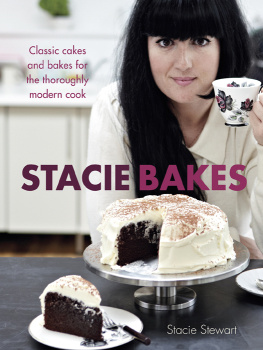



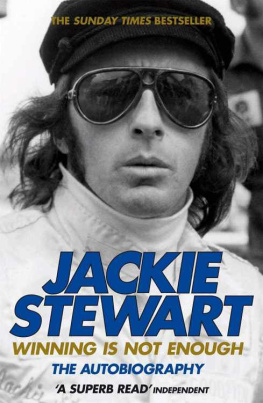

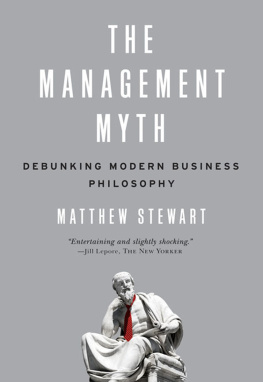
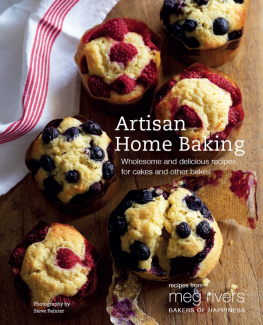
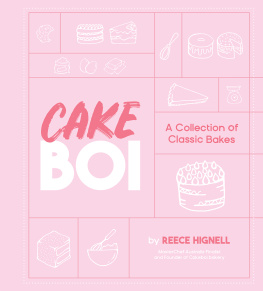
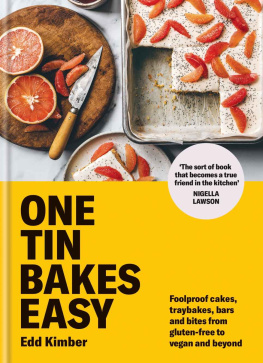
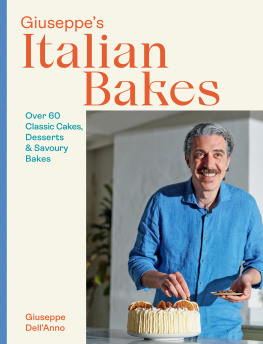
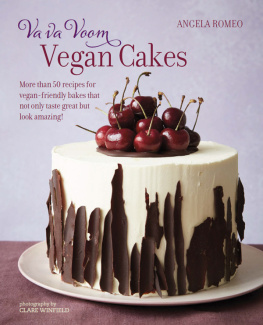
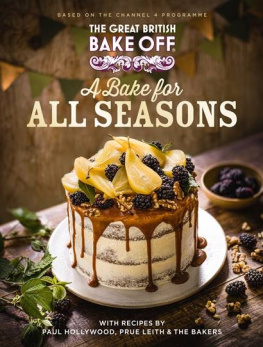
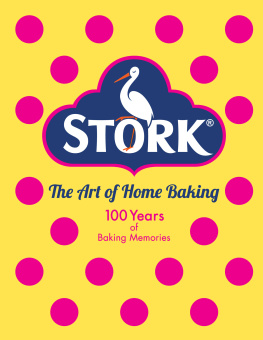
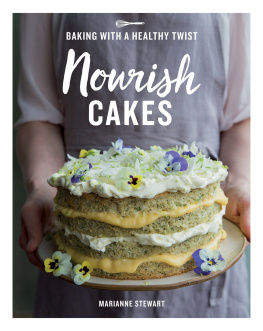
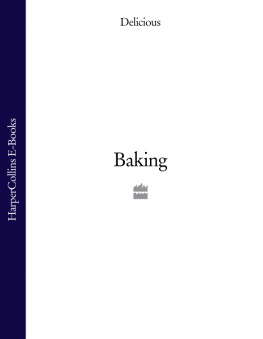







 Always use medium, free-range eggs and unsalted butter for the recipes in this book, unless otherwise specified.
Always use medium, free-range eggs and unsalted butter for the recipes in this book, unless otherwise specified.